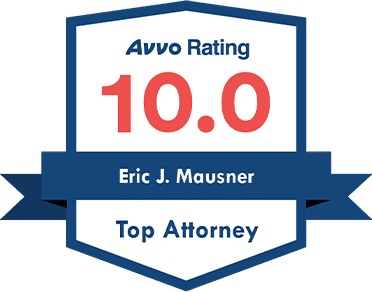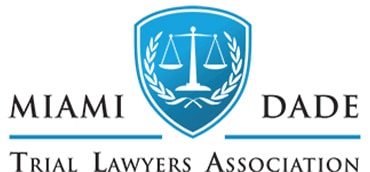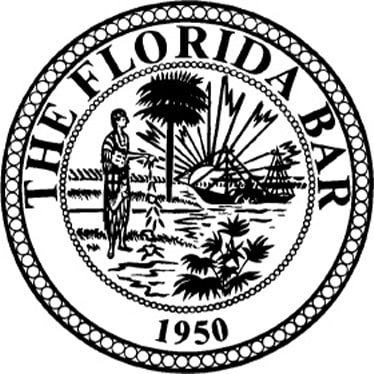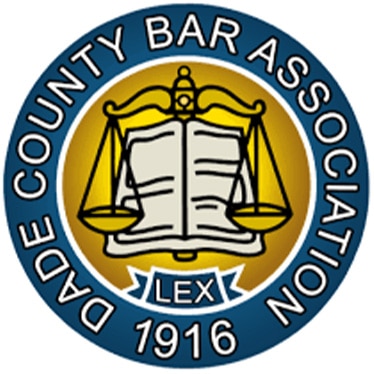Car Accident Lawyer
Car Accident Attorneys Representing Injured Victims in Miami, Florida
Very few of us will be in a capsized ship, a bridge collapse, a towering inferno, or an airplane crash. Traumatic, violent accidents are uncommon, and we view the survivors of these accidents as tragic victims of fate. But a car accident? Whether they are catastrophic or minor accidents, many of us will end up in a car crash at some point in our lives or know someone who has been in such an accident. We make cars today with the aim to protect drivers and their passengers so that they may walk away from any collision that may unfortunately happen. But in the event that you were injured in a car wreck, you deserve the chance to seek maximum compensation from the at-fault party for your injuries and emotional trauma. A Miami Car Accident Lawyer can assist you 24/7.
Insurance companies may offer car accident victims a certain settlement for their injuries and vehicle damages, but they will attempt to save every penny that they can. The payment you receive for your insurance claim may be inadequate when it comes to covering necessary medical treatment. This is not fair. If a negligent driver caused your injuries, you should be able to obtain a financial recovery that settles your medical expenses and addresses your pain and suffering.
It is asking too much of a car accident victim to contend with an insurance company, any antagonistic at-fault parties, and the legal representation for the other side while they are still recovering from their injuries. Please consider speaking with professional law offices experienced in practicing legal cases such as yours. Your lawyers will take the burden off your shoulders and represent your case in and out of the courtrooms in pursuit of a satisfactory conclusion.
At the Miami law firm Mausner Graham Injury Law PLLC, our attorneys have years of experience providing compassionate legal assistance to clients in need.
Insurance companies may offer car accident victims a certain settlement for their injuries and vehicle damages, but they will attempt to save every penny that they can. The payment you receive for your insurance claim may be inadequate when it comes to covering necessary medical treatment. This is not fair. If a negligent driver caused your injuries, you should be able to obtain a financial recovery that settles your medical expenses and addresses your pain and suffering.
It is asking too much of a car accident victim to contend with an insurance company, any antagonistic at-fault parties, and the legal representation for the other side while they are still recovering from their injuries. Please consider speaking with professional law offices experienced in practicing legal cases such as yours. Your lawyers will take the burden off your shoulders and represent your case in and out of the courtrooms in pursuit of a satisfactory conclusion.
At the Miami law firm Mausner Graham Injury Law PLLC, our attorneys have years of experience providing compassionate legal assistance to clients in need.
Get Your Free Case Review
Contact us today for your free & confidential case review. Our team will help you get the compensation that you deserve.
What Should You Do If You’re In An Auto Accident?
If you’re ever unfortunate enough to be in a car accident, it is important that you attempt to remain calm and carefully assess the situation. Do not leave the scene of the accident. You do not want to be charged with a hit-and-run. The first thing you should do is attempt to determine how badly you are injured. Please send it to the other passengers in your vehicle if you are well enough.
After everyone has been thoroughly examined for injuries in your car, check for injuries in the other vehicle or injuries to pedestrians.
At this point, dial 911 for help.
While you are waiting for law enforcement and paramedics to arrive, begin a dialogue with the other driver. Suppose they are conscious and attempt to get the other party’s insurance company information. Do not say sorry. Do not say that you are fine and uninjured. These comments could be used against you at a later date.
After everyone has been thoroughly examined for injuries in your car, check for injuries in the other vehicle or injuries to pedestrians.
At this point, dial 911 for help.
While you are waiting for law enforcement and paramedics to arrive, begin a dialogue with the other driver. Suppose they are conscious and attempt to get the other party’s insurance company information. Do not say sorry. Do not say that you are fine and uninjured. These comments could be used against you at a later date.
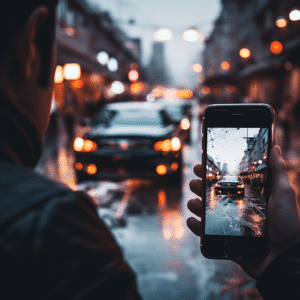
After exchanging insurance provider information, seek out any witnesses to the crash. Attempt to get their eyewitness accounts of what happened. If possible, get their accounts recorded on video. Then get their contact information.
If your phone is undamaged, try to get pictures and video of the crash scene and any car accident injuries.
Call a lawyer about your car accident case as soon as possible. If the police arrive before you are able to do this, you may give them a report of what happened. Try to reach out to your attorney before they arrive.
In the instance that insurance adjusters arrive on the scene, know that you do not have to communicate with them.
If your phone is undamaged, try to get pictures and video of the crash scene and any car accident injuries.
Call a lawyer about your car accident case as soon as possible. If the police arrive before you are able to do this, you may give them a report of what happened. Try to reach out to your attorney before they arrive.
In the instance that insurance adjusters arrive on the scene, know that you do not have to communicate with them.
What Are Common Causes For Car Accidents In Florida?
At our law firm, our legal team has represented clients in a number of different types of car accident cases, including head-on collisions, ‘T-Bone’ crashes, sideswipe accidents, rear-end collisions, rideshare accidents, crashes involving an uninsured driver, and accidents where motorists were under the influence of drugs or alcohol.
The most common causes of vehicle accidents in Florida include the following:
- Dangerous lane changes
- Defective vehicles
- Distracted driving
- Driver fatigue
- Driver negligence
- Driving the wrong way down a one-way street
- Driving under the influence of drugs
- Drunk driving
- Poor vehicle maintenance
- Poor weather conditions
- Reckless driving
- Road disrepair
- Road rage
- Running red lights or making illegal turns
- Speeding
- Street racing
- Tailgating
- Teenage or otherwise inexperienced drivers
- Texting or talking on a cell phone while driving
- Tire blowouts
No matter what caused your motor vehicle accident, if another party was at fault, you may have a legal claim to recover economic damages and non-economic damages.
What Types Of Injuries Are Commonly Seen In A Car Crash?
While most people walk away from a car accident with only a few bumps and bruises, some suffer serious injuries. And worse still, many vehicle accidents are fatal to either the drivers or their passengers.
Common injuries seen in car accidents include:
- Amputation of limbs
- Broken bones
- Broken ribs and potentially punctured lungs
- Bruising
- Burns
- Concussions
- Cuts and lacerations
- Damage to eyes and ears, potentially causing loss of the senses
- Dislocated joints
- Facial injuries and disfigurement
- Herniated discs
- Internal bleeding and organ damage
- Paralysis
- Post-traumatic stress disorder (PTSD)
- Soft tissue damage
- Spinal cord injuries
- Traumatic brain injuries
- Whiplash
- Wrongful death
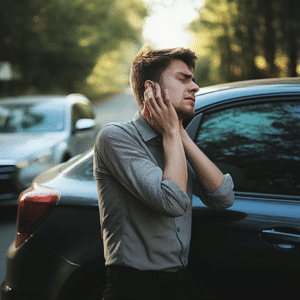
You will likely require professional medical care and physical therapy if you’ve suffered an injury in a car crash. Your insurer may not provide adequate coverage for your needs. With a properly constructed lawsuit, it is possible to recover maximum compensation from liable parties in order to ensure that you are appropriately taken care of.
Get Your Free Case Review
Contact us today for your free & confidential case review. Our team will help you get the compensation that you deserve.
How Can A Car Accident Lawyer Help You Recover A Fair Settlement?
In some instances, how well you are protected may depend on your insurance policy’s robustness. For example, suppose you have a personal injury protection (PIP) policy. In that case, you may better protect yourself and your passengers financially in an accident, regardless of who the at-fault driver was. While not all states require PIP coverage for drivers, Florida does. A PIP claim can cover the majority of your medical bills if you are ever in an accident.
However, sometimes the insurance companies will deny a claim, or maybe their settlements will not properly cover the emotional pain and suffering you have endured.
With the help of an experienced lawyer, you may be able to recover a more substantial car accident settlement. In addition to taking care of any outstanding expenses for medical aid, rehabilitation therapy, or psychological services, the settlement can cover other damages.
Your settlement may cover any lost wages if your injuries forced you to miss time from work. If the injuries prevent you from returning to your profession, you may be compensated for any future lost income that your work would have provided.
You may also recover non-economic damages for things like lost companionship, diminished quality of life, disability, and emotional distress.
Contact our law firm to schedule a free consultation with the experienced car crash injury attorneys of Mausner Graham Injury Law PLLC.
However, sometimes the insurance companies will deny a claim, or maybe their settlements will not properly cover the emotional pain and suffering you have endured.
With the help of an experienced lawyer, you may be able to recover a more substantial car accident settlement. In addition to taking care of any outstanding expenses for medical aid, rehabilitation therapy, or psychological services, the settlement can cover other damages.
Your settlement may cover any lost wages if your injuries forced you to miss time from work. If the injuries prevent you from returning to your profession, you may be compensated for any future lost income that your work would have provided.
You may also recover non-economic damages for things like lost companionship, diminished quality of life, disability, and emotional distress.
Contact our law firm to schedule a free consultation with the experienced car crash injury attorneys of Mausner Graham Injury Law PLLC.
Schedule A Free Case Evaluation With An Experienced Car Accident Attorney Today
Car accidents may be reasonably common events, but that does not make them any less dangerous or psychologically traumatic. Even for car wreck survivors, the accident may end up being the most violent and traumatizing event of their lives. And for those who do not survive, the loss will be felt by their families and loved ones for years and years to come.
Regardless of the cause or who was responsible for the accident, it is important that we take all necessary steps to review and study the crash. This effort is necessary for the injured to receive the compensation they deserve and for the future so that proper safety measures may be implemented to prevent such an accident from happening again. For the immediate future, however, what matters most is that any injured drivers, passengers, and pedestrians receive the medical treatments that they require and do not have to sacrifice their life savings in hopes of healing their wounds.
Filing car accident claims and personal injury lawsuits can be a complicated legal process, made all the more difficult if you are contending with debilitating injuries or mourning the loss of a loved one. It would be unfair to require you to pursue legal action on your own while you are already in a state of such pain.
We are here to help you through this challenging chapter of your life.
If you hire us as your legal counsel, you will be well-cared for by personal injury attorneys with years of experience representing accident victims in cases similar to yours. That said, we are well aware that every case is unique, and every client has their own personal goals. Our car accident lawyers will provide personalized, compassionate representation to fit your needs and pursue your goals. While we may suggest certain legal options, we will only force decisions on our clients that they are comfortable with. We will work in coordination with you so that you always feel appropriately represented and your case unfolds according to your wishes.
There can be no guarantees in a court of law. Depending on the strength of your personal injury claim, it may prove impossible to recover the maximum settlements you are after. However, with a proper eye for detail, a solid relationship with professionals in the reconstruction of car accidents, and a well-versed understanding of state law, we can provide you and yours with legal care deserving of your trust and respect.
Please keep in mind that our lawyers operate on a contingency fee basis. This means that if we are unsuccessful in recovering compensation for your car accident case, you will not owe us a single dime in legal fees. Additionally, we offer a free initial consultation to prospective new clients. This is a zero-commitment consultation, so if you do not feel we are the right firm to represent your claim, you are under no obligation to retain our services.
To discuss your case in better detail, please get in touch with our Miami law office. You may schedule your free case evaluation by calling our legal team at 954-419-5710.
Regardless of the cause or who was responsible for the accident, it is important that we take all necessary steps to review and study the crash. This effort is necessary for the injured to receive the compensation they deserve and for the future so that proper safety measures may be implemented to prevent such an accident from happening again. For the immediate future, however, what matters most is that any injured drivers, passengers, and pedestrians receive the medical treatments that they require and do not have to sacrifice their life savings in hopes of healing their wounds.
Filing car accident claims and personal injury lawsuits can be a complicated legal process, made all the more difficult if you are contending with debilitating injuries or mourning the loss of a loved one. It would be unfair to require you to pursue legal action on your own while you are already in a state of such pain.
We are here to help you through this challenging chapter of your life.
If you hire us as your legal counsel, you will be well-cared for by personal injury attorneys with years of experience representing accident victims in cases similar to yours. That said, we are well aware that every case is unique, and every client has their own personal goals. Our car accident lawyers will provide personalized, compassionate representation to fit your needs and pursue your goals. While we may suggest certain legal options, we will only force decisions on our clients that they are comfortable with. We will work in coordination with you so that you always feel appropriately represented and your case unfolds according to your wishes.
There can be no guarantees in a court of law. Depending on the strength of your personal injury claim, it may prove impossible to recover the maximum settlements you are after. However, with a proper eye for detail, a solid relationship with professionals in the reconstruction of car accidents, and a well-versed understanding of state law, we can provide you and yours with legal care deserving of your trust and respect.
Please keep in mind that our lawyers operate on a contingency fee basis. This means that if we are unsuccessful in recovering compensation for your car accident case, you will not owe us a single dime in legal fees. Additionally, we offer a free initial consultation to prospective new clients. This is a zero-commitment consultation, so if you do not feel we are the right firm to represent your claim, you are under no obligation to retain our services.
To discuss your case in better detail, please get in touch with our Miami law office. You may schedule your free case evaluation by calling our legal team at 954-419-5710.

Were You Injured In An Accident? Call now for a FREE Case Review
Can’t talk right now? Tell us about your accident using the form below.
Get Your FREE Case Review
On This Page
- Car Accident Attorneys Representing Injured Victims in Miami, Florida
- What Should You Do If You’re In An Auto Accident?
- What Are Common Causes For Car Accidents In Florida?
- What Types Of Injuries Are Commonly Seen In A Car Crash?
- How Can A Car Accident Lawyer Help You Recover A Fair Settlement?
- Schedule A Free Case Evaluation With An Experienced Car Accident Attorney Today

